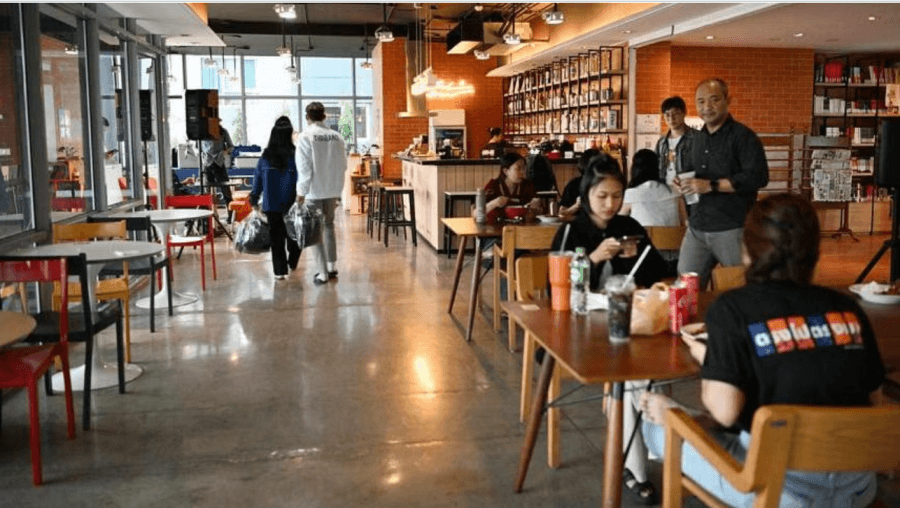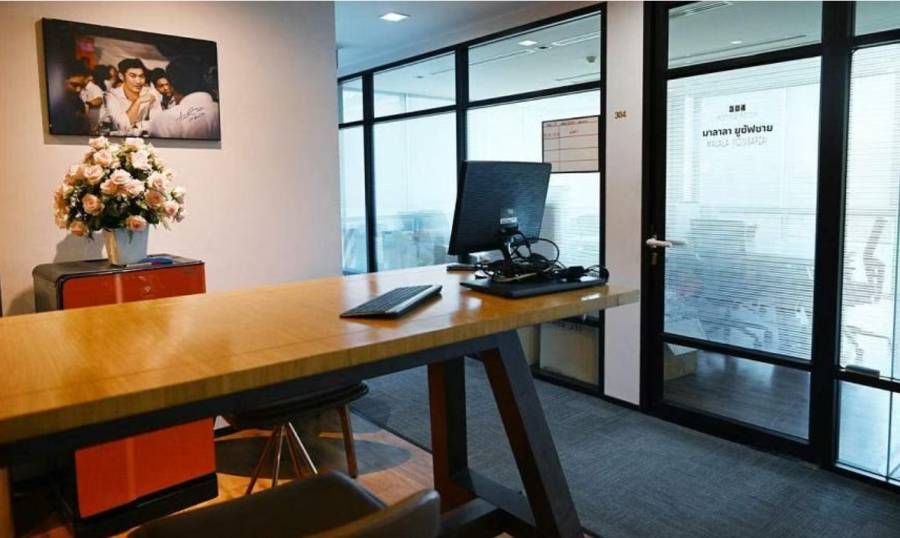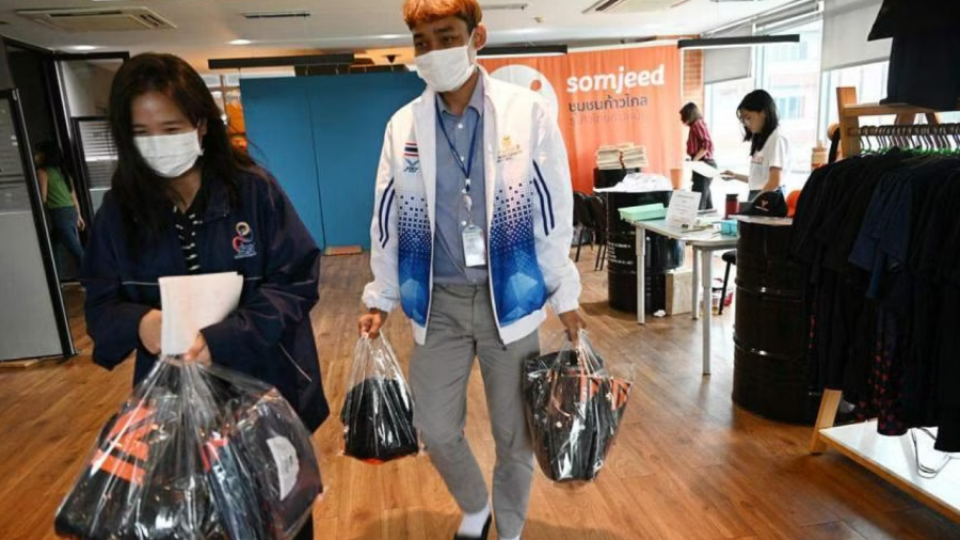May 17, 2023
BANGKOK – A 30-minute drive out of central Bangkok lies the heart of Thailand’s latest orange obsession.
A seven-storey building, at the entrance of a narrow street in a residential neighbourhood, houses the Move Forward Party headquarters. With no large sign or even its distinctive orange logo out front, there is little evidence that this is where the party’s stunning win in Sunday’s general election was devised through many hours of planning.
The biggest winner, Move Forward claimed 151 of the 500 seats up for grabs in Parliament’s Lower House, according to unofficial tallies by the election commission.
Should official results and ongoing talks to form a coalition government support this mandate, the seven-storey building will likely be the home of Thailand’s main ruling party.
“I still can’t believe the results,” said Ms Supapan Palangsak, 52, who manages the shop selling Move Forward merchandise in the building. “We were all celebrating right here that night.”
The party’s reformist policies, which call for the end of military conscription, legalising same-sex marriage and amending the law against royal defamation, have often been thought to be too radical for mainstream Thai politics.
But after it won the largest share of the popular vote, the Thai people’s desire for change is clear, said analysts.
On Tuesday morning, reporters camped in the lobby of the Move Forward headquarters, with cameras and microphones set up for possible interviews and press conferences, or to capture any development in ongoing negotiations to form the next government.
Leader Pita Limjaroenrat, 42, and other party executives are trying to assemble a coalition of 309 MPs from six non-military affiliated parties, including the Thaksin Shinawatra-linked Pheu Thai Party.
With redbrick walls and New York loft-style decor, the building is the main destination for meetings, press conferences and – as evidenced from the well-stocked bar at its second-floor cafe – party celebrations.
Much like a typical start-up, its conference rooms and offices are named, and its chosen theme speaks volumes of the party’s message and policies.

Sol cafe, short for Solidarity Cafe, which serves coffee, food and snacks at the Move Forward headquarters. ST PHOTO: STEPHANIE YEOW
One is called Rosa Parks, inspired by the American civil rights activist, another bears the name of Pakistani education activist Malala Yousafzai. There is also the Nuamthong Praiwan room, named after a 60-year-old Thai who crashed his taxi into a tank to protest against the 2006 military coup.
A picture of Mr Thanathorn Juangroongruangkit, leader of the dissolved Future Forward Party that preceded Move Forward, hangs on a pantry wall.

A picture of Mr Thanathorn Juangroongruangkit, leader of the dissolved Future Forward Party that preceded Move Forward, hangs on a pantry wall. ST PHOTO: STEPHANIE YEOW
The party used to have about 50 MPs, but has tripled its size. It now has the most seats in the Lower House, giving it an advantage in establishing a government.
“Party gatherings will definitely be a bit of a squeeze from now on,” said deputy party leader Sirikanya Tansakun, 42, who is part of the team negotiating with the allied parties over forming the coalition government.

Move Forward’s deputy party leader Sirikanya Tansakun said the past days have been busy trying to assemble the six-party coalition. ST PHOTO: STEPHANIE YEOW
Hours after Move Forward’s win, Mr Pita staked his claim to being the country’s 30th prime minister.
But he and his party’s executives know that the road ahead is challenging.
Installing Mr Pita as the head of government will require majority support from Parliament, which includes the backing of the royalist, pro-junta appointed 250-seat Senate.
In the 2019 election, the Senate voted overwhelmingly in favour of former coup leader Prayut Chan-o-cha for prime minister. Several senators have already indicated that they might not support Mr Pita’s bid to be prime minister.


